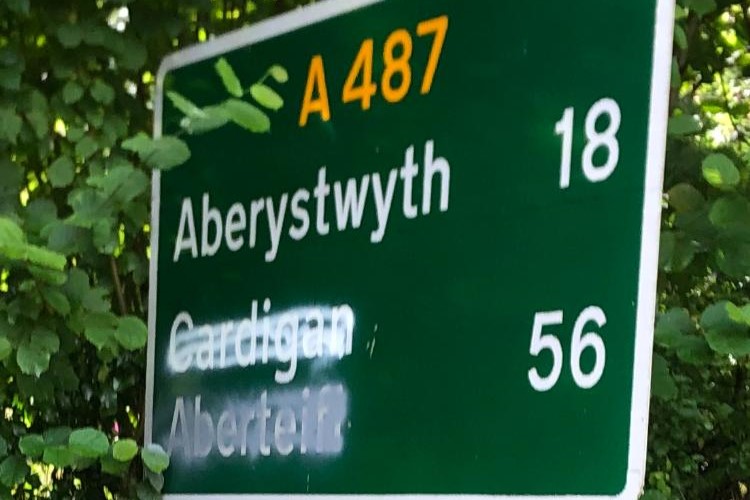Politics
WG votes down another rights Bill

THE WELSH Government has voted down a second Private Members Bill in a week, leading to an angry reaction from the Welsh Conservative Party.
Welsh Conservative AM – Darren Millar – slammed the Welsh Governments ‘tribalism’ as a key contributor to its failings in Wales, and described its rigid approach to politics as ‘comparative of an authoritarian regime’.
Last week, The Herald reported on opposition AMs’ fury that the Welsh Government voted against Assembly Member Paul Davies’ private bill which aimed to ensure increased support for autistic people of all ages, by addressing issues such as health and social services, educational outcomes, access to housing, and employment and providing rights of statutory redress when services fail.
The Older People’s Rights Bill was proposed by Mr Millar, and designed to ensure that older people in Wales were protected, promoted and respected by public sector decision makers.
The Bill was backed by the Older People’s Commissioner, the Equalities and Human Rights Commission, Age Cymru, Age Connects, and the Cymru Older People’s Alliance, amongst others.
Proposals for Mr Millar’s Bill had previously received cross-party support, and the Welsh Government supported a motion which was agreed by the National Assembly for Wales on 12th January 2016 to bring forward legislation to protect and promote the rights of older people.
GOVERNMENT REJECTS STATUTORY RIGHTS
Notwithstanding the Welsh Government’s previous position, it once again waved the shroud of wanting to deal with issues in a holistic way without resorting to legislation ‘at this stage’.
Fear is growing that the Welsh Government is fearful of enacting legislation that confers rights to individuals, preferring instead to listen to service providers whose services might not withstand close scrutiny and a rights-based approach to ensuring compliance with standards.
Speaking in the Assembly, Darren Millar said: “The purpose of the Bill is to build on Wales’s excellent track record to date by embedding a rights-based approach in the development, planning and delivery of public services that affect older people in Wales.
“If given permission, I will seek to consult with stakeholders to develop a Bill that will further enshrine the rights of older people within Welsh law, by placing a duty on Welsh Ministers to have regard to the United Nations Principles for Older Persons when making decisions that may impact upon older people in Wales; that will provide for the ability to extend that due-regard duty to local authorities, health boards and other Welsh public authorities; that will place a duty on Welsh Ministers to promote knowledge of and understanding of the UN Principles for Older Persons; and that will require Welsh Ministers to publish annual reports on their compliance with their older people’s rights schemes—something that doesn’t happen at the moment.”
The proposed legislation was very similar to the Rights of Children and Young Persons (Wales) Measure 2011. A Bill which passed the Assembly with little controversy.
Mr Millar continued: “We embarked upon this journey a number of years ago and we can deliver and pioneer a new rights-based approach for older people’s rights here in Wales. We’ve got an opportunity to develop legislation that will result in practical improvements in the decision making and delivery of public services, that will raise awareness of older people’s rights and give them recognition and status, and that will empower those hundreds of thousands of older people across Wales to access those rights.”
THE TIME IS NOT RIGHT
Responding on behalf of the Welsh Government, Minister for Local Government Julie James suggested that older persons’ rights are already sufficiently protected by a range of Welsh Government measures, including its totemic Wellbeing of Future Generations Act.
In any event, the Welsh Government did not regard the time had yet come for legislation – rather ignoring the point that the current First Minister supported such legislation when he was Health Minister.
Ms James concluded: “While I strongly support the sentiments behind this Bill, the time is not right for this particular bit of legislation. When we do legislate, we should do that holistically for the whole of society and in a way that identifies the needs of all disadvantaged groups.”
Supporting Darren Millar’s bill and suggesting that it should progress to the next stage so elements of it could be incorporated into future Welsh Government legislation, Plaid Cymru’s Helen Mary Jones pointed out: “Unless individuals have mechanisms they can use which don’t depend on the Government and that do not depend on an independent commissioner, but that they can use themselves to enforce those rights, those rights at their very end may not be enforced.”
David Rowlands (UKIP) said: “It is incumbent on statutory authorities to ensure that the core mainstream services are available to older residents in the same way that they are for other people… If children are protected in law, why not the other most vulnerable group, the old?”
THE PAYROLL VOTE VOTES
Concluding the debate, Darren Millar noted that an invitation extended to both himself and the older people’s commissioner to meet with the Government on February 6 to discuss its ‘holistic’ plans for the future was made only the day before the scheduled debate.
As usual, Labour AMs, including ‘independent’ government minister Dafydd Elis Thomas and Lib Dem Kirsty Williams, followed the government line. Two members abstained, Bethan Sayed and Jenny Rathbone. Apart from Ms Sayed, all other opposition parties supported the Bill.
It fell by 27 votes to 21.
Speaking after the vote, Darren Millar said: “This is not the way politics should be handled in this country, and it’s not the footing that the First Minister should start on with his new Government. It’s a tribal attitude and it is holding Wales back.
“The Welsh Government does not have a monopoly on good ideas. Both this Bill – and last week’s Autism Bill – are non-contentious proposals which had widespread cross-party and stakeholder support.
“We are supposed to be a democracy where the ideas of all elected representatives, regardless of their party politics, can be treated with respect, but in Wales, under this regime, that clearly isn’t the case.”
News
Another Senedd member defects to Reform as Lib Dem MP hits out

David Chadwick MP says James Evans MS ‘put career before constituents’ after party switch
A SENEDD member has defected to Reform UK, prompting sharp criticism from a neighbouring MP who accused him of abandoning his principles to protect his political future.
James Evans has left the Conservatives to join Reform UK, a move that immediately drew fire from local David Chadwick, the Welsh Liberal Democrats MP for Brecon, Radnor and Cwm Tawe.
Mr Chadwick said the switch raised serious questions about consistency and loyalty to voters in mid Wales.

‘Career before constituents’
In a strongly-worded statement, Mr Chadwick said: “What’s clear is that James Evans is more interested in protecting his own career than standing up for his constituents in Brecon and Radnorshire.
“You could fill a library with his past criticisms of Reform and of Conservative defectors. He has described Reform as a danger to national security because of its links to Russia, and warned they would push Britain towards an insurance-based NHS.
“Yet the moment his own seat came under threat, he jumped ship to the very people he once said had no principles.
“The Welsh Liberal Democrats are clear: our principles are not for sale. We will continue to do what we were elected to do, stand up for our constituents, not engage in political psychodrama.”
Past remarks resurface
The comments highlight a series of previous attacks made by Mr Evans on Reform UK and those who had joined the party.
He has previously questioned Reform’s leadership and direction, and suggested the party could not be trusted with the NHS, warning of a move towards insurance-based healthcare.
The Liberal Democrats also pointed to remarks made last year when Mr Evans criticised another Conservative who defected, saying she had “no principles”.
Opponents say those statements now sit uneasily with his own decision to change parties.
Growing political pressure
The defection comes amid increasing competition between parties across rural and mid Wales, with Reform seeking to capitalise on dissatisfaction with both Labour and the Conservatives ahead of the next Senedd election.
Mr Evans has yet to respond publicly to Mr Chadwick’s comments.
News
Road sign vandalism sparks political row across west Wales

BILINGUAL road signs across parts of west Wales have been deliberately defaced, with English place names sprayed over in what politicians have described as targeted acts of vandalism.
Incidents have been reported in St Clears, Welshpool and Burry Port in recent days, with the English wording obscured while the Welsh language names were left untouched.
The damage has prompted criticism from Andrew RT Davies, the South Wales Central Conservative Member of the Senedd, who said the attacks were “disgraceful” and risk fuelling division within communities.
In St Clears, Carmarthenshire, black paint was sprayed across the English name on entrance signage, while the Welsh version, “Sancler”, remained clearly visible. The town itself dates back to the 12th century as an Anglo-Norman settlement, with the Welsh name derived from the original English.
Similar reports have emerged from Welshpool in Powys and Burry Port on the Carmarthenshire coast, where bilingual signs have also been tampered with.
Mr Davies said: “These attacks, presumably carried out by Welsh separatist activists, are disgraceful.
“The English language is central to Welsh culture.
“Attempts to erase it are completely unacceptable and must be condemned.”
He added that road signs are there for safety and navigation and should not be used to make political statements.
Local residents have also voiced frustration, with some pointing out that obscuring parts of signs could pose a risk to drivers unfamiliar with the area, particularly visitors and tourists.
Bilingual signage has been standard across Wales for decades, reflecting both Welsh and English as everyday languages used by communities. While the vast majority of signs remain untouched, the recent incidents appear to have been deliberate and selective.
Police have not yet confirmed whether any arrests have been made, but anyone with information about damage to public property is urged to contact their local force.
Anyone who spots vandalised signage is also advised to report it to their local council so repairs can be arranged quickly.
News
Reform appoints Dan Thomas to lead party in Wales

Former Conservative council leader tasked with building support ahead of Senedd elections
DAN THOMAS has been appointed as the new Welsh leader of Reform UK, in a move the party says will strengthen its organisation ahead of next year’s Senedd elections.
Thomas, a former Conservative council leader, will head Reform’s campaign across Wales as the party attempts to convert growing polling support into seats at devolved level for the first time.
The appointment marks Reform’s most significant step yet in formalising its Welsh structure, with the party seeking to present itself as a credible alternative to Labour, the Conservatives and Plaid Cymru.
Party sources say his brief is straightforward: build candidates, grow membership and turn dissatisfaction with mainstream politics into votes.
Dan Thomas said: “It’s a huge honour to lead Reform here in Wales. We’ve built a strong team and we’ll get stronger still between now and May and beyond.
“Every day we will be fighting for our forgotten communities and everyone the establishment has ignored for so long.
“This May, vote Reform to deliver the change Wales desperately needs.”

Shift from the Conservatives
Thomas’s move follows a broader trend of defections from the Conservative Party to Reform UK, both in Wales and across the UK.
In recent weeks, former Conservative Senedd member James Evans also switched allegiance, signalling unrest within Tory ranks and giving Reform higher-profile figures to front its Welsh campaign.
Reform has increasingly targeted voters frustrated with NHS waiting lists, cost-of-living pressures and rural economic concerns, arguing that the established parties have failed to deliver meaningful change.
Supporters say Thomas brings experience of local government leadership and campaigning, which they believe will help professionalise the party’s operations in Wales.
Critics hit out
However, opponents have been quick to criticise the appointment.
Plaid Cymru leader Rhun ap Iorwerth described Thomas as effectively “Farage’s deputy”, claiming his role would be focused more on advancing the ambitions of Nigel Farage than developing policies tailored to Wales.
Plaid figures argue Reform is largely made up of former Conservatives and lacks detailed plans on devolved issues such as health, education and local government funding.
They have also pointed to the party’s past controversies, including the conviction of former Wales figure Nathan Gill, though Reform says it is now under new leadership and direction.
Election battle ahead
Recent polling suggests Reform could play a significant role in shaping the next Senedd, with support rising in parts of south and west Wales where voters have traditionally backed Labour or the Conservatives.
If those numbers translate into seats, Reform could disrupt the balance of power in Cardiff Bay and complicate coalition maths after the election.
For Thomas, the challenge will be turning protest votes into an organised ground campaign capable of winning constituencies under Wales’s proportional system.
Whether Reform’s momentum continues — or stalls under scrutiny — is likely to become clearer as candidates are selected and manifestos published in the months ahead.
Reform UK has said more details about its Welsh policy platform will be announced later this year.
-

 Crime22 hours ago
Crime22 hours agoSex offender jailed after living off grid in Pembrokeshire and refusing to register
-

 News2 days ago
News2 days agoPrincess of Wales visits historic Pembrokeshire woollen mill
-

 Crime6 days ago
Crime6 days agoPembroke man accused of child sex offences sent to Swansea Crown Court
-

 Health4 days ago
Health4 days agoDoctor struck off after sexual misconduct findings at Withybush Hospital
-

 Crime2 hours ago
Crime2 hours agoTeacher injured and teenager arrested for attempted murder at Milford Haven School
-

 Crime6 days ago
Crime6 days agoManhunt intensifies after woman seriously injured in Carmarthen park stabbing
-

 Community6 days ago
Community6 days ago50s women threaten legal action over pension compensation refusal
-

 Crime6 days ago
Crime6 days agoDisqualified HGV driver charged after dangerous A40 incident

























